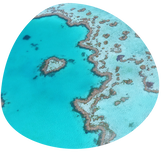Animal Assisted Intervention Policy
Next Challenge supports a family's choice to engage in Animal Assisted Intervention practices for the benefit of their child and their families well being. The following definitions are applied within the Next Challenge guidelines for inclusion of animals for intervention purposes.
Definitions:
Animal Assisted Intervention (AAI): AAI involves therapeutic processes that intentionally include or involve animals as part of the process (Krug, Serpell, 2006). Animal-Assisted Therapy, Animal-Assisted Activities, and service animals (eg Guide Dogs or Assistance Dogs) are examples of animal assisted interventions that involve animals with specific characteristics and become fundamental to a person's treatment.
Animal Assisted Activity (AAA) refers to casual activities of the ‘meet and greet’ kind that involves animals and handlers visiting patients and their families at the bedside or in common areas. Specially trained volunteers or professionals with animals that meet specific criteria deliver AAA in programs designed to reduce anxiety, increase tactile contact, improve self-esteem and stimulate interaction. AAA is also attributed to improving staff morale and assisting staff during some procedures, especially with children, by providing a welcome distraction.
Animal Assisted Therapy (AAT) is a structured mode of tailored individual therapy run under professional supervision, with animals trained for the role. AAT is designed to improve the physical, social, emotional, and/or cognitive functioning of the patient, as well as providing educational and motivational effectiveness for participants. AAT can be delivered to individuals or groups undertaking structured rehabilitation and recovery programs to improve strength, range of motions, balance, memory, speech and interaction.”
Families planning to include an animal that is not a recognised Service Animal in therapy service provision must complete the following form to ensure the animal meets current guidelines. These guidelines have been established in order to address practical issues and ensure AAI is provided in a safe and effective manner for all parties (reference NSW Guidelines).
At this time Next Challenge only has approval under the terms of our lease agreement to allow Service Animals on the the Next Challenge premises, where Service Animals are defined as;
“Service animal means any dog that is individually trained to do work or perform tasks for the benefit of an individual with a disability, including a physical, sensory, psychiatric, intellectual, or other mental disability. The work or tasks performed by a service animal must be directly related to the handler ́s disability. Examples of work or tasks include, but are not limited to;
Based on this restriction Animal Assisted Interventions by non Service Animals will be supported by Next Challenge through our service provision in a home or community environment of the family’s choice.
Families are further supported by Next Challenge to request approval on a case-by-case basis to be allowed access to Next Challenge premises. At this time case by case requests for approval will need to include puppies in training to be an assistant or service dog. Next Challenge appreciates that part of training requires the puppy or dog to be exposed to the environments it may regularly experience with its owner, and that experiencing therapy rooms/ environments such as Next Challenge may be an important element of preparing a puppy to be assist in therapy interventions.
Families will need to complete the form requesting that the animal can access our premises and Next Challenge will use the supplied information to prepare a de-identified request to the leasor to protect client confidentiality.
Date Written: January 2015
Date Review Completed: July 2021
Due for Review: July 2023
Definitions:
Animal Assisted Intervention (AAI): AAI involves therapeutic processes that intentionally include or involve animals as part of the process (Krug, Serpell, 2006). Animal-Assisted Therapy, Animal-Assisted Activities, and service animals (eg Guide Dogs or Assistance Dogs) are examples of animal assisted interventions that involve animals with specific characteristics and become fundamental to a person's treatment.
Animal Assisted Activity (AAA) refers to casual activities of the ‘meet and greet’ kind that involves animals and handlers visiting patients and their families at the bedside or in common areas. Specially trained volunteers or professionals with animals that meet specific criteria deliver AAA in programs designed to reduce anxiety, increase tactile contact, improve self-esteem and stimulate interaction. AAA is also attributed to improving staff morale and assisting staff during some procedures, especially with children, by providing a welcome distraction.
Animal Assisted Therapy (AAT) is a structured mode of tailored individual therapy run under professional supervision, with animals trained for the role. AAT is designed to improve the physical, social, emotional, and/or cognitive functioning of the patient, as well as providing educational and motivational effectiveness for participants. AAT can be delivered to individuals or groups undertaking structured rehabilitation and recovery programs to improve strength, range of motions, balance, memory, speech and interaction.”
Families planning to include an animal that is not a recognised Service Animal in therapy service provision must complete the following form to ensure the animal meets current guidelines. These guidelines have been established in order to address practical issues and ensure AAI is provided in a safe and effective manner for all parties (reference NSW Guidelines).
At this time Next Challenge only has approval under the terms of our lease agreement to allow Service Animals on the the Next Challenge premises, where Service Animals are defined as;
“Service animal means any dog that is individually trained to do work or perform tasks for the benefit of an individual with a disability, including a physical, sensory, psychiatric, intellectual, or other mental disability. The work or tasks performed by a service animal must be directly related to the handler ́s disability. Examples of work or tasks include, but are not limited to;
- assisting people with impaired vision and impaired hearing
- providing non-violent protection or rescue work
- assistance dogs to pull a wheelchair
- assisting an individual during a seizure
- alerting individuals to the presence of allergens
- retrieving items such as medicine or the telephone
- providing physical support and assistance with balance and stability to individuals with mobility
- disabilities
- helping persons with psychiatric and neurological disabilities by preventing or interrupting impulsive or destructive behaviours
Based on this restriction Animal Assisted Interventions by non Service Animals will be supported by Next Challenge through our service provision in a home or community environment of the family’s choice.
Families are further supported by Next Challenge to request approval on a case-by-case basis to be allowed access to Next Challenge premises. At this time case by case requests for approval will need to include puppies in training to be an assistant or service dog. Next Challenge appreciates that part of training requires the puppy or dog to be exposed to the environments it may regularly experience with its owner, and that experiencing therapy rooms/ environments such as Next Challenge may be an important element of preparing a puppy to be assist in therapy interventions.
Families will need to complete the form requesting that the animal can access our premises and Next Challenge will use the supplied information to prepare a de-identified request to the leasor to protect client confidentiality.
Date Written: January 2015
Date Review Completed: July 2021
Due for Review: July 2023



